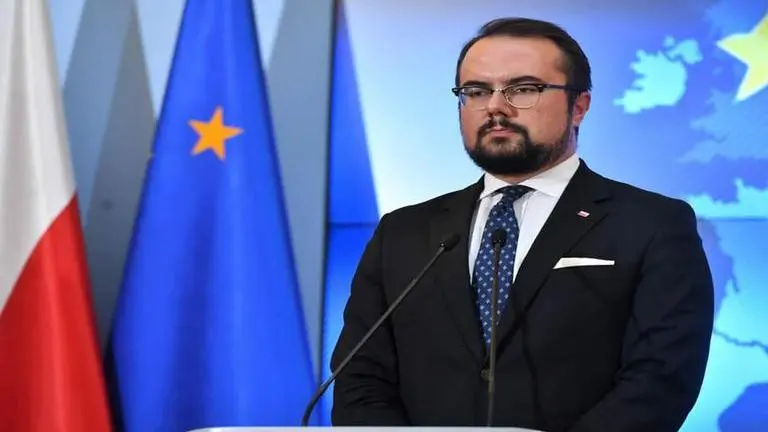Updated 5 June 2022 at 06:14 IST
Poland claims EU has started work on seventh package of sanctions against Russia amid war
The European Union has begun work on the seventh package of sanctions against Russia, Poland's Foreign Ministry claimed on June 4.
- World News
- 3 min read

The European Union has begun work on the seventh package of sanctions against Russia, Poland's Foreign Ministry claimed on June 4. According to Poland's Foreign Minister Pawel Jablonski, the restrictions are expected to disrupt Russian gas supply and widen the list of banks that will be cut from the international financial system SWIFT. The sanctions are most likely to have an impact on Gazprombank. He went on to say that a ban on technologies that Russia may employ in industry, as well as the confiscation of all Russian assets in the EU, are both necessary.
Pawel Jablonski said, "Sanctions should be even tougher — in the context of the gas that Russia can still sell, in the context of disconnecting all Russian banks from the SWIFT system. I am talking mainly about Gazprombank."
On April 1, Russian President Vladimir Putin ordered that payments for Russian gas deliveries to "unfriendly" countries be made in rubles. Moscow has said that ruble accounts with Gazprombank are required. Some nations, including Bulgaria, Poland, and Finland refused to pay under the new plan, prompting Russia to cut off gas supply. The EU officially confirmed the implementation of the sixth package of sanctions against Russia on June 3.
EU Sanctions against Russia
Until date, EU member states have imported 2.2 million barrels per day (bpd) of crude oil and 1.2 million bpd of oil products from Russia. Amid the skyrocketing price of oil, Russia earns more than $1 million every day, as per reports. The EU nations have decided to prohibit importing any oil from Russia that arrives by sea, excluding almost two-thirds of the total.
They will continue to import Russian oil by pipeline for the time being. This will benefit nations like Hungary and Slovakia. However, Germany and Poland, which also import Russian oil via pipeline, have stated that they will cease doing so by the end of this year.
Advertisement
According to EU President Ursula von der Leyen, this will essentially lower the EU's oil imports from Russia to 10% or 11% of their existing level. The EU has also stated that it will stop importing Russian coal by August. The EU, however, is less eager to put restrictions on Russian gas because it relies on Russia for roughly 40% of its gas needs. Moreover, the alliance vowed in March to lower gas imports by two-thirds within a year, but no additional action has been agreed upon.
Image: AP
Published By : Aparna Shandilya
Published On: 5 June 2022 at 06:14 IST
